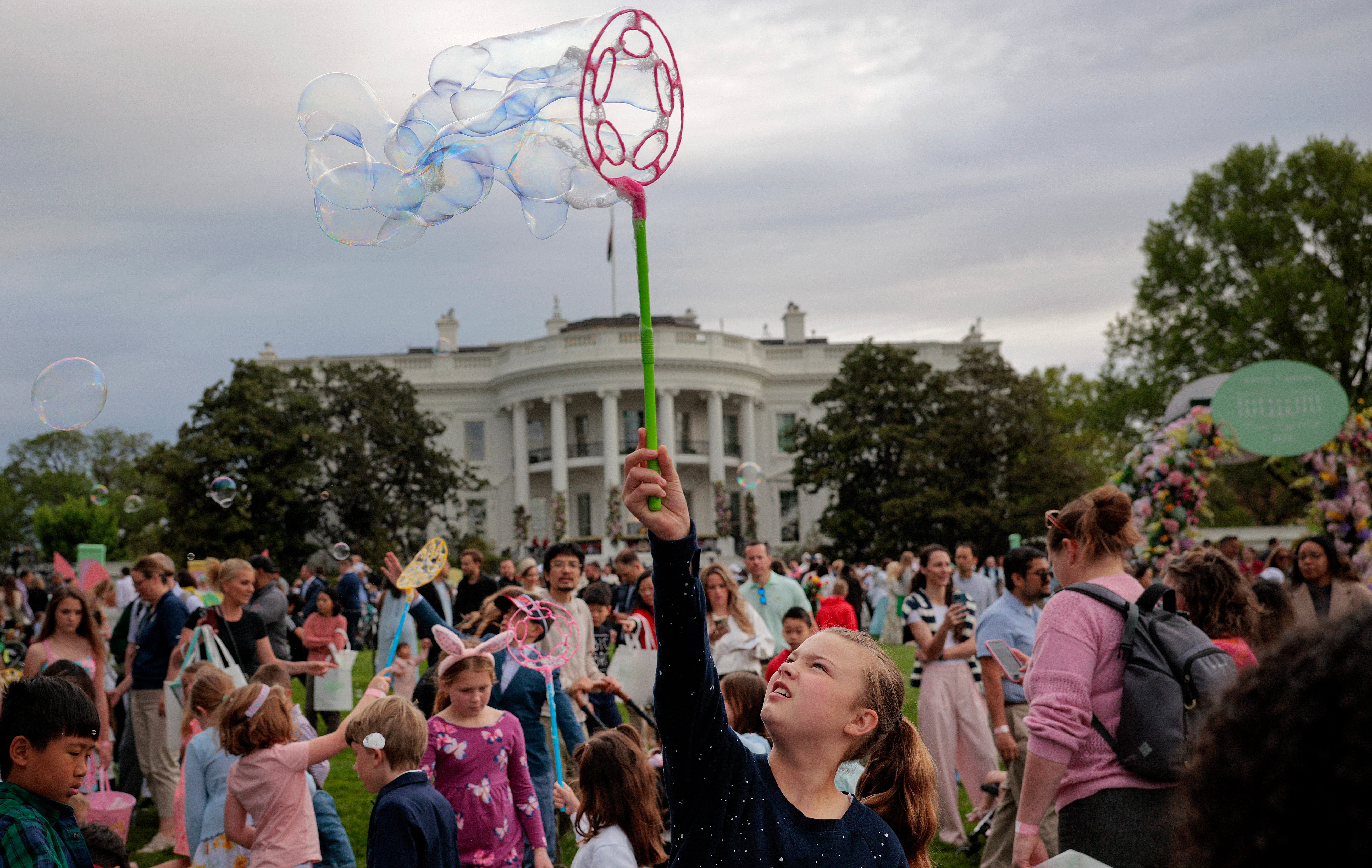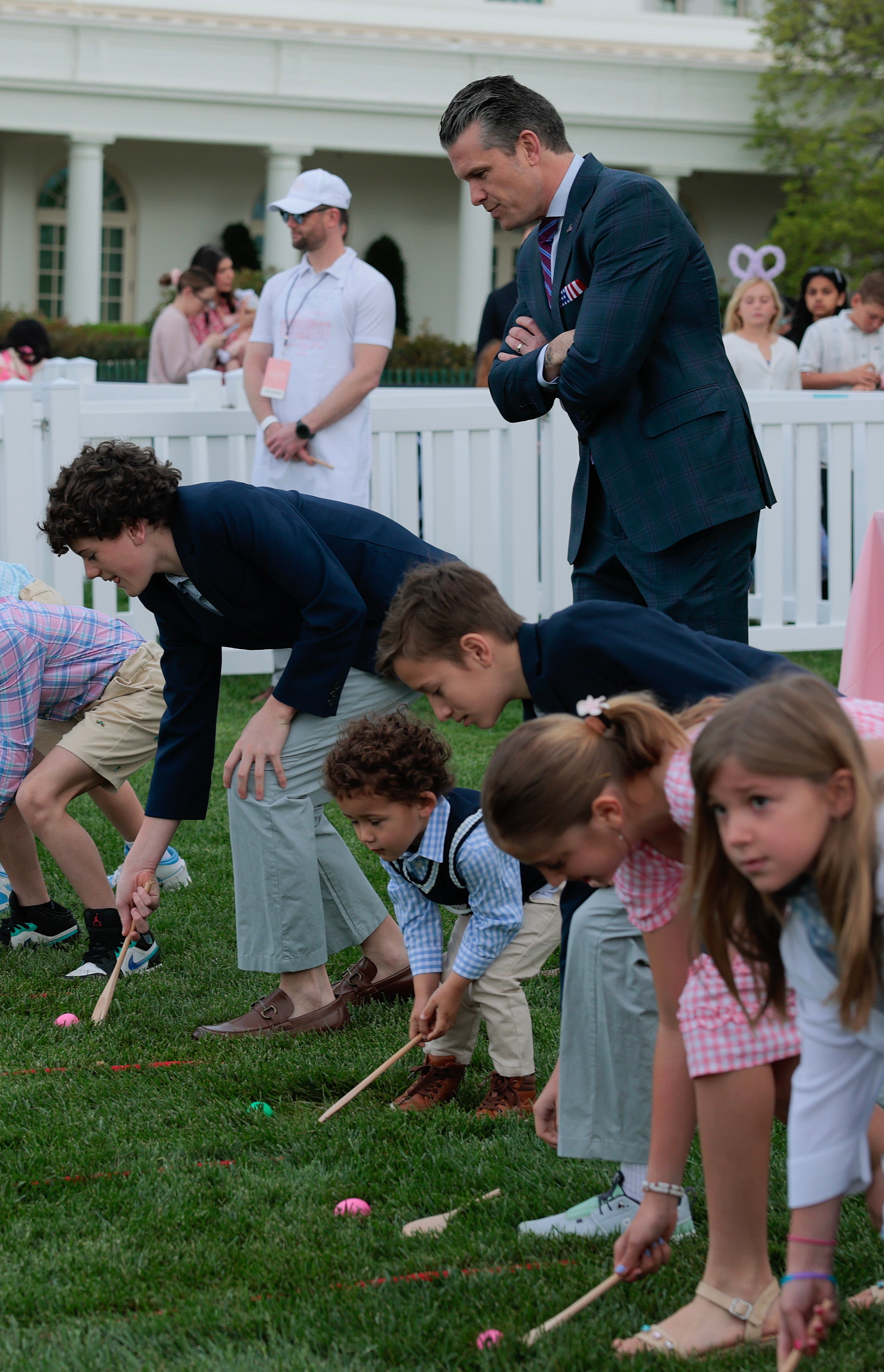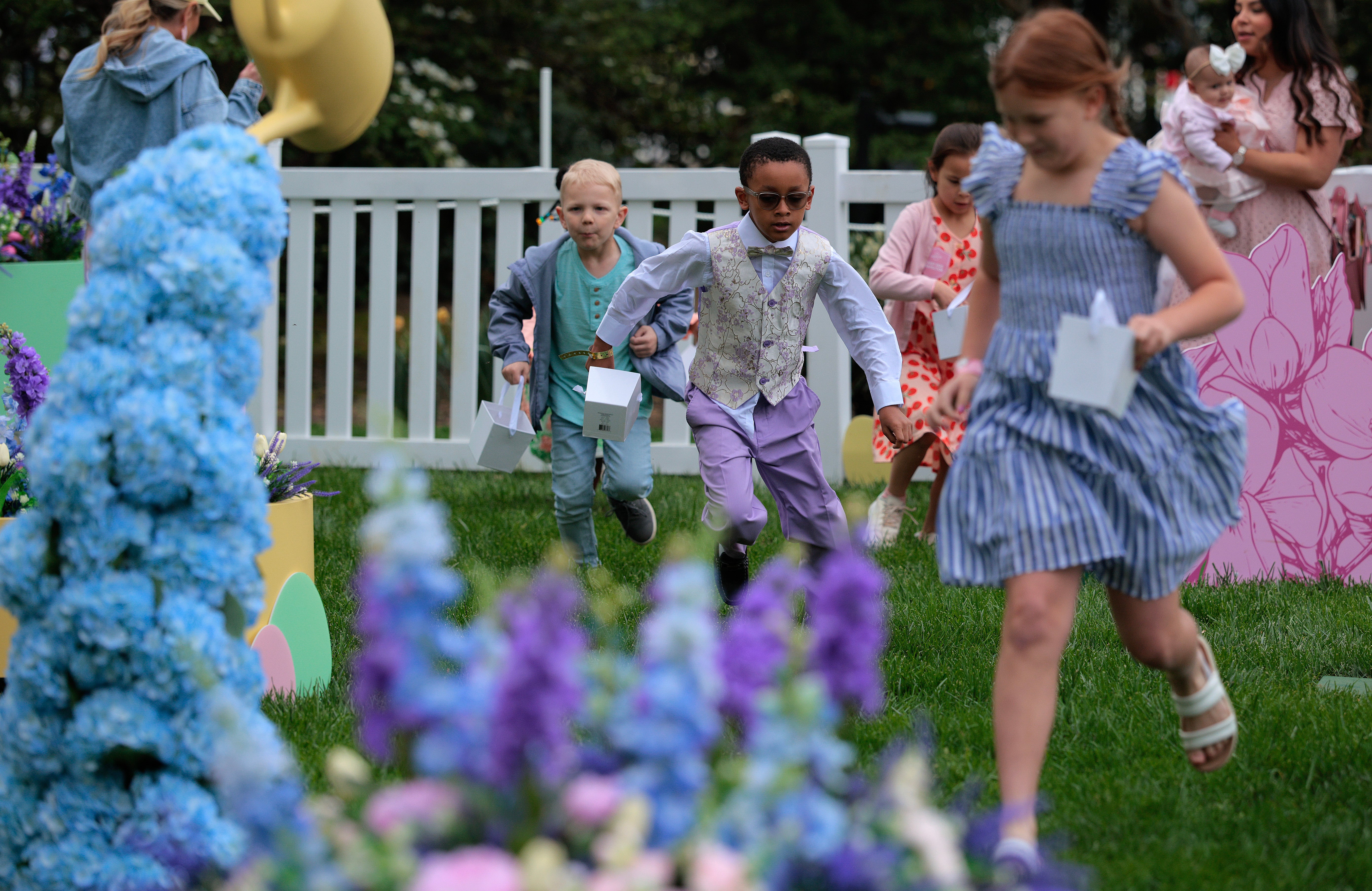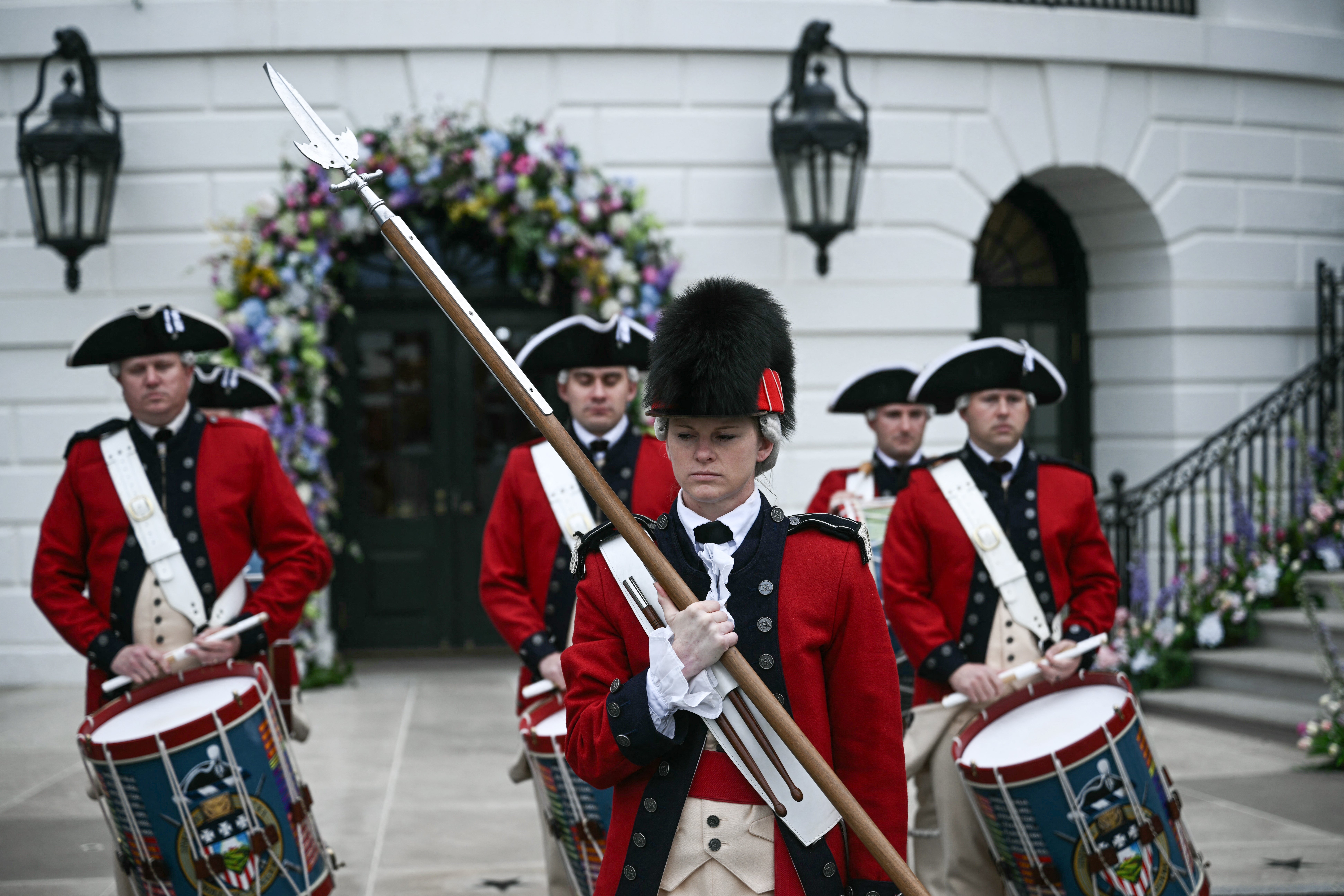President Donald Trump and First Lady Melania Trump are hosting the annual White House Easter Egg Roll, with almost 30,000 eggs on the South Lawn, even as egg prices remain sky-high.
This year’s egg roll includes corporate sponsorships, a departure from the previous sponsorship by the American Egg Board. The event has previously been sponsored by the board in part to avoid having corporate sponsors on the White House grounds.
Sponsors who paid $200,000 received a “custom 30’x30′ branded activation” as well as four tickets to the WHEER brunch with Melania Trump and a choice of a meet and greet or a tour of the White House, CBS News noted. Sponsorship packages were also made available for $125,000 and $75,000.
Several companies, such as Amazon, YouTube, and Meta, are sponsoring a myriad of event stations. Harbinger, an events company, put together a nine-page pamphlet for possible sponsors, offering “media and PR exposure.”
The theme of this year’s egg roll acknowledges the upcoming 250th anniversary of the founding of the U.S., with children signing mini versions of the Declaration of Independence and dressing up as the Founding Fathers.
Children with political connections attend the event, as well as the winners of a lottery in all 56 states and territories.
Trump said that as many as 42,000 people were expected at the White House throughout the day. The president noted that he has ordered flags to be flown at half-staff to honor Pope Francis following his passing, saying, “He was a good man, he worked hard, and loved the world.”
“Easter is special, and it’s one of our favorite days. It’s one of our favorite periods of time. We’re honoring Jesus Christ, and we’re going to honor Jesus Christ very powerfully throughout our lives,” said Trump. “We’re bringing religion back in America. We’re bringing a lot of things back, but religion is coming back to America.”




The White House Easter Egg Roll officially began in 1878 when President Rutherford B. Hayes opened the South Lawn to children who usually rolled eggs on the grounds of the U.S. Capitol. However, some accounts of informal egg-rolling events date back to the presidency of Abraham Lincoln, the White House website states.
Celebrations on Easter Monday on the grounds of the U.S. Capitol grew so popular in the 1870s that President Ulysses S. Grant signed a bill banning egg-rolling events on the grounds due to landscape concerns.
However, in 1878, a group of children approached the gates of the White House in the hope that they would be allowed to play egg-rolling games on the grounds. Hayes let the children in, and the White House event soon became an annual tradition, according to the site. In 1889, President Benjamin Harrison added the U.S. Marine Band to the event.

Taking part in the event grew so popular that the number of guests had to be restricted, with the Secret Service shutting down a “racket” in 1939 that involved children attempting to sneak adults into the grounds for a fee.
The planning of the event has traditionally been the task of first ladies, with Lou Hoover adding folk dancing while Pat Nixon included the now-traditional egg roll races.
Due to the world wars, there were no egg roll events between 1917 and 1920 and between 1943 and 1945. Similarly, food conservation and construction led to the cancellation of the event between 1946 and 1952 before President Dwight Eisenhower brought the event back in 1953.



